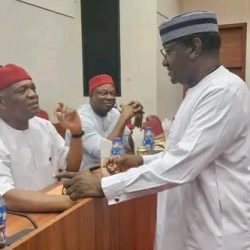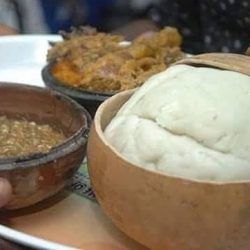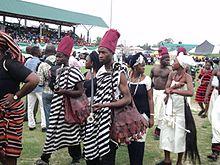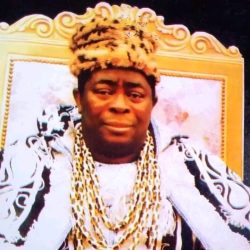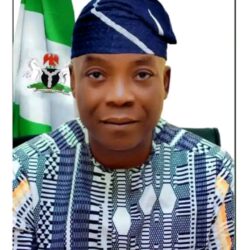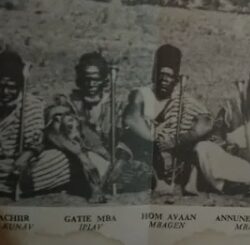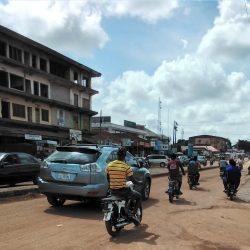The foundation of the United Middle Belt Congress in 1956 was a major factor in the movement for the political mobilization of the Tiv as well as the creation of a Middle Belt Region.
Although collectively founded by groups and societies in the Middle Belt, the UMBC ultimately turned into an instrument of widespread campaign and mobilization of the Tiv. Under the able leadership of J.S. Tarka, a Tiv, the UMBC was widely accepted throughout Tivland.
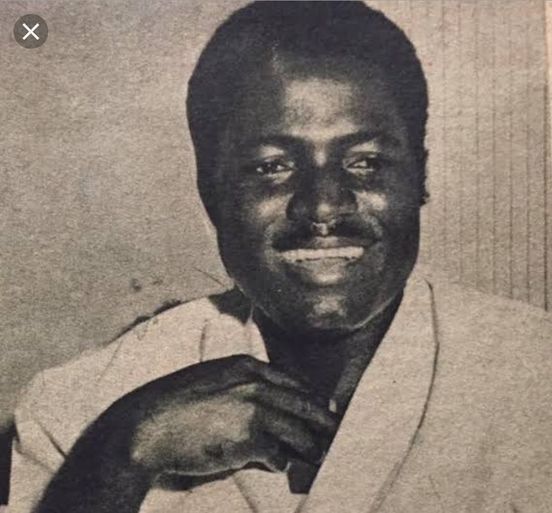
The emergence of the UMBC was a direct challenge to both the NPC and NCNC as both parties struggled to secure the support of
prominent Tiv and other non-Islamic politicians in the Middle Belt.
The NPC govemment responded to UMBC initiative by refusing to give Tiv people any cabinet positions in the govemment. Moreover, the NPC was determined to resist the idea of Tiv political leadership in the Northem House of Assembly. They chose, rather, to appoint the ldoma, Igala and Jukun to cabinet positions in the Northem
Executive Council, to the exclusion of the Tiv. This deliberate policy was intended to spite the Tiv who were more numerous than the Idoma, Igala and Jukun, because of the leadership of J.S. Tarka in the UMBC.
Even the Revised Area Development Committee set up in 1951 by the colonial govemment did not have any Tiv representation. Apart from the nine colonial officers who served on the Committee there were fourteen natives representing different interests.
They included the Sultan of Sokoto, Emir of Kano, Emir of Katsina, Emirof Zaria, Wallin Bomo, Shettima Kashim, Dan Iya Hadejia, Atta Gaga (!gala), Emir of Kontagora, Makaman Bida, Maajin Ratin Gwandu, Mallam Yahaya Ilorin, Mallam Muhammadu Ribadu and Abubakar Tafawa Balewa.
It was these acts of Tiv marginalization either by the colonial authorities, or the NPC controlled govemment, that made the Tiv to give massive support for the UMBC – a party that stood for the creation of Middle Belt State out of Northern Consequently, members of the UMBC who gained entry into the Northern House of Assembly after the 1956 Regional elections were determined to oppose the NPC leadership and its politics. Led by J.S. Tarka as President, the UMBC caucus in the House maintained an effective opposition front in Northem politics.
They were critical of the NPC policy on Middle Belt and constantly re-echoed the socio-economic and political grievances and deprivations of the Middle Belt areas.
Tarka’s political sagacity and strength of character was indeed an asset to the UMBC The UMBC under Tarka leadership succeeded in arousing a sense of general unease directed against Islamic religious and political authorities, particularly that which was imposed from the period of British administration preparatory to the transfer of power in Northern Nigeria.
The UMBC also fought for the inclusion of its members into the National Legislative House in Lagos. Hitherto, election into the Federal House was an exclusive prerogative of Emirs and Chiefs in the NHC of the North.
To further strengthen its position in the crusade to liberate the Tiv and other Middle Belt groups and societies from domination by the NPC, a formal accord was signed between the Action Group and the UMBC on 6 March 1957.
Among other things ratified by the accord were the following: Party publicity material was to be produced in the joint name of the Alliance, and the palm tree, popular among both the Yoruba and the Tiv, was adopted as a symbol of the Alliance.
The above developments were disturbing particularly to the NPC leadership in the North. Consequently, they adopted a number of measures aimed at frustrating, if not suppressing the genuine aspirations of the groups and societies in the Middle Belt.
Northem opinion was decidedly tilted against the UMBC/ AG Alliance, which was seen largely as a menacing instrument in the articulation of the grievances of the Middle Belt people.
References
Afigbo, E.A., 1972, The Warrant Chiefs: Indirect Rule in Southeastern Nigeria 1891-1929, Longman, London.
Ahire, P.T., (ed) 1993, The Tiv in Contemporary Nigeria, TSP, Zaria.
Abeghe, T., n.d., The Tiv and Tiv Riots
Abraham, R.C., 1940, The Tiv People, Crown Agents, London.
